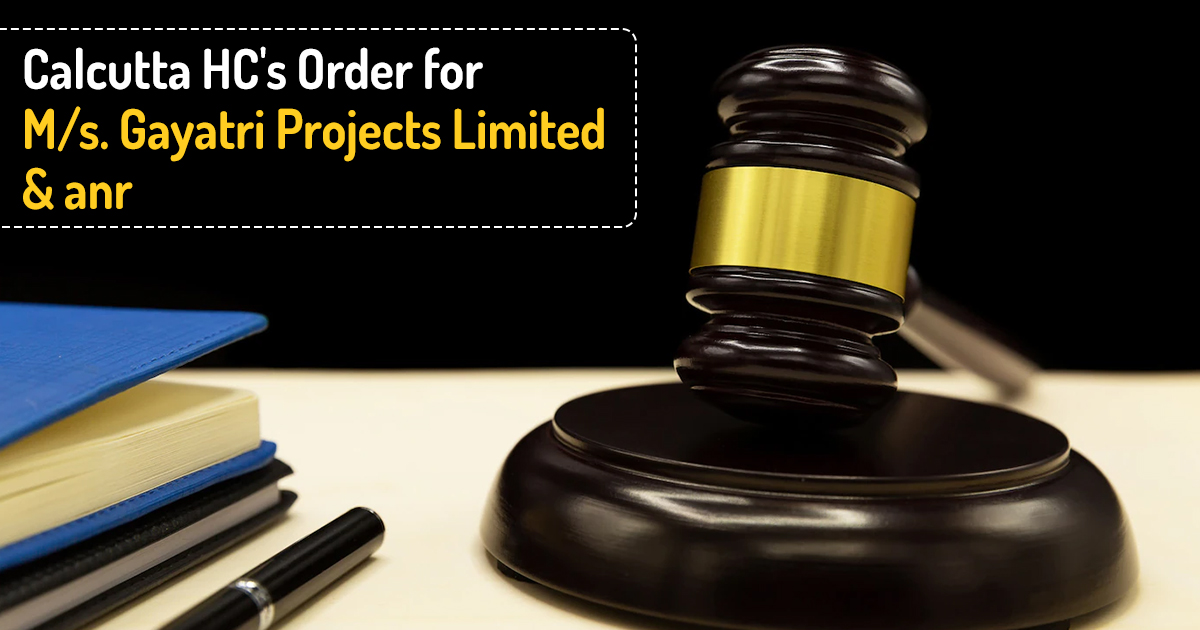
A West Bengal Goods and Service Tax (GST) judgment was rejected by the High Court of Calcutta for violating the Natural Justice Principle.
The petitioner, M/s. Gayatri Projects Limited contested the ruling in which the Single Bench ordered affidavits to be filed and declined to issue any interim orders till the disposal of the writ petition.
Ankit Kanodia, an advocate, represented the appellants, Debasish Ghosh, a government attorney, represented the State, and Rajeev Agarwal, an attorney, represented respondent no 4.
The West Bengal Authority for Advance Ruling Goods and Services Tax, Kolkata, issued the order that is being appealed in the writ petition, ruling that Eastern Coalfields Limited, the applicant, 4th respondent, is not authorized to the ITC that it sought on the appellants’ invoices for the months of January 2020, February 2020, and March 2020, for which the supplier had submitted Forms GSTR 1 and GSTR 3B in November 2020.
Eastern Coalfields Limited, the respondent, was obliged to reverse the aforementioned input tax credit. Even though the 4th respondent’s claim for an input tax credit related to the invoices submitted by the appellants, the appellants were not given a hearing by the authority because they were not included as parties to the mentioned application.
The petitioner contested that the non-payment of the GST amount levied via the 4th respondent to the appellants is a breach of Article 19(1)(g) and 300A of the Constitution of India and against the provisions of the CGST and WBGST Act, 2017.
Also argued that the authority reached its judgment based on the fact that too much credit had been availed without first evaluating how much credit was actually available based on uploaded invoices; a 10% statutory limit to be calculated for claiming the credit referred to invoices not uploaded; The Court held that the appellants could not be declared ineligible by a decision that was made by the authority without consulting them.
Read Also: HC Decides to Not Consider GSTN Cancellation Order Without Any Violation
Further noted that ordering the appellants to prefer an appeal to the appellate authority may not be effective since the facts the appellants seek to add to the record were not included in the records before the original authority. The appellants have argued that insufficient factual details were not presented to the authority.
Instead of instructing the appellants to contact the appellate authority, a two-member bench made up of Justice T. S. Sivagnanam and Justice Hiranmay Bhattacharyya noted that the subject must be reevaluated by the authority itself. The Court authorized the writ petition by setting aside the impugned order and the case was remanded back to the 5th respondent for newer deliberation.
| Case Title | M/s. Gayatri Projects Limited & Anr Vs The Assistant Commissioner of State Tax |
| Citation | M.A.T No.2027 of 2022 with I.A. No.CAN 1 of 2022 |
| Date | 05.01.2023 |
| Appellant By | Mr Ankit Kanodia, Ms Megha Agarwal & Ms Payal Shaw |
| Respondent By | Mr. T. M. Siddique, ld. A.G.P., Mr. Debasish Ghosh & Mr. Nilotpal Chatterjee |
| Calcutta HC | Read Order |









